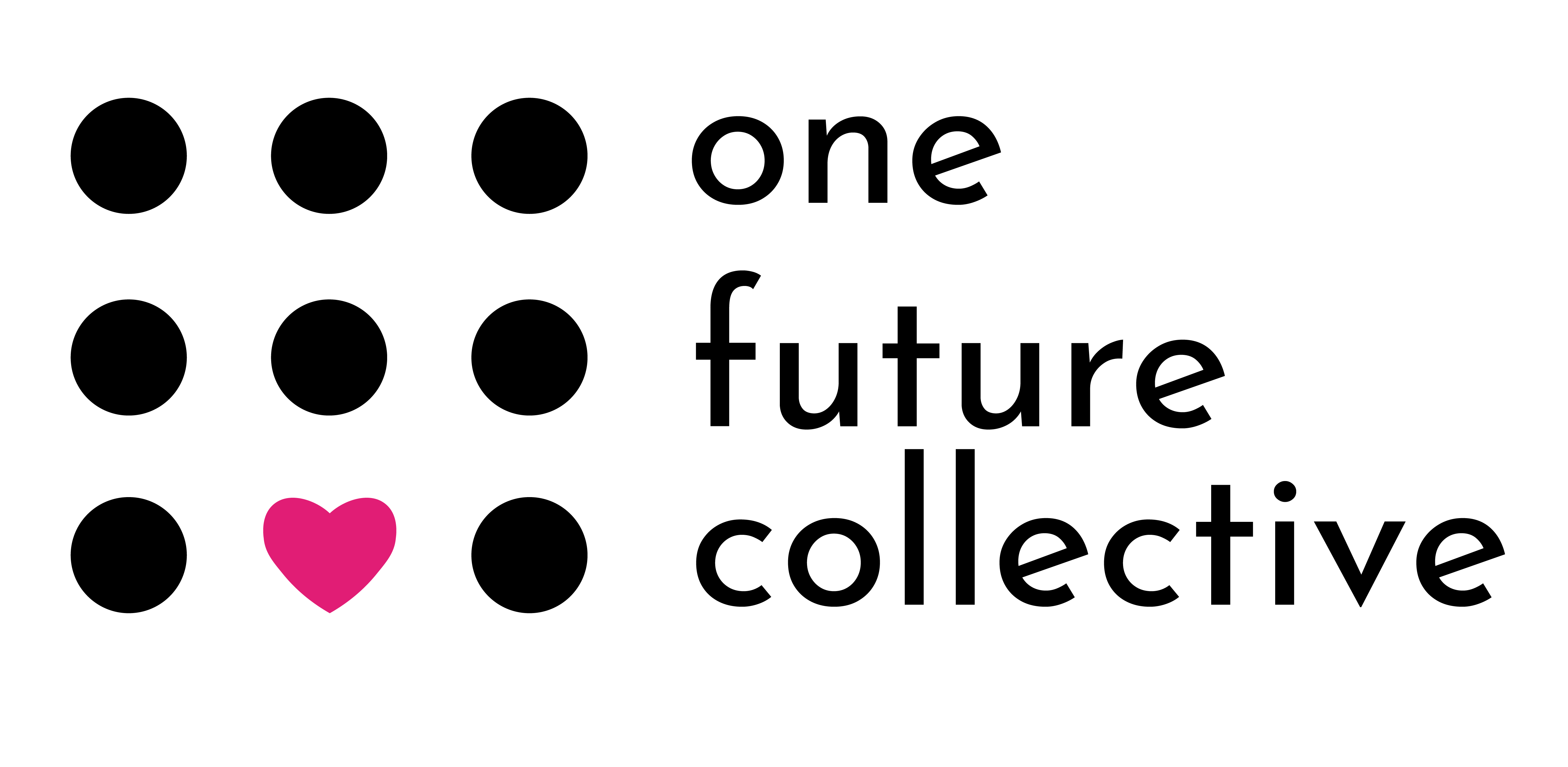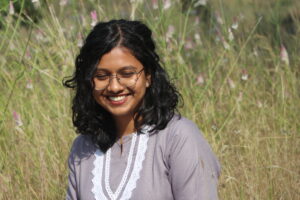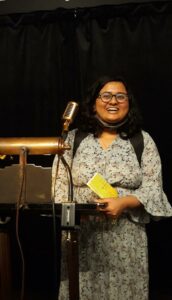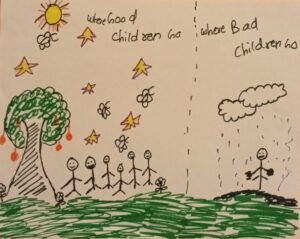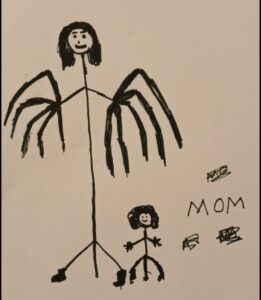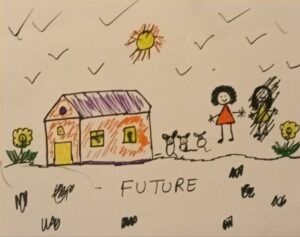The Internet changed. So did Humanity.
As someone who has been online for nearly two decades, it has been a whirlwind to watch the world change, all through a blue screen.
In 2015, I found myself starting a newsletter, which I called The Alipore Post, as a way to archive the poems, art and fascinating links the Internet was sending my way. I called it ‘a love letter to the Internet’ because of the enormous sense of wonder the digital revolution opened me up to. It was the era of poetry journals, blogs, newsletters, and the joys of discovery that StumbleUpon and Tumblr offered. Everyone had a voice, and could drive conversations that mattered to them. Suddenly, I was a writer, poet, and curator online.
It felt safe. Until it wasn’t.
…
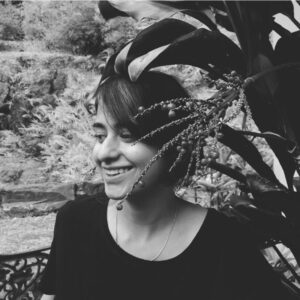
To build a safe space online, for oneself and the community you nurture, is a massive responsibility. When someone shares their email address with you to receive a newsletter you carefully write and curate, with the inherent societal trust that you will not sell their personal data to big tech. Or when someone follows you on Instagram, willingly letting you enter their feed. What you share, what you say, what you don’t…you are influencing culture and mindsets.
The internet opened me up to fascinating libraries at every corner. Newsletters and blogs felt like walking into the worlds of people who intrigued me without overstepping or invading their privacy. And yet, putting myself out there was and continues to be difficult. I’m a private human being who believes in vulnerability and authenticity but working behind the scenes. I don’t want to become or be seen as an influencer, or a critic of good and bad poetry. I struggle to show up for myself, just like everyone else. The newsletter is my outlet to express myself, a safe space to talk about what matters to me. Unfiltered.
I keep returning to The Slow Media Manifesto, which says, ‘Slow Media inspire, continuously affect the users’ thoughts and actions and are still perceptible years later.’ While I love the doors that have opened up to me, allowing me to engage in meaningful collaborations with strangers seemingly with my values, I grow weary and wary of what it means to be online.
I resonate with what author Minna Salami said in this interview: “The internet and social media held so much promise when they first launched; people truly believed that they were going to transform society. As one of the early bloggers, I remember that excitement. But what we see now is that we not only reproduced, but even increased many of the same problems that already existed. That is because the very intellect and knowledge system, the way of knowing that underpins these technologies, is flawed, divisive, and robotic. It’s lacking in soul.”
On that note, 100 ways to share your work + life that aren’t social media
…
One of the biggest learnings for me is that once something is out in the (digital) world, it has its own life. You can steer it, and fight the algorithm, but there’s no guarantee of how it pans out. As Are.na co-founder Charles Broskoski puts it, “I’ve come to see Are.na as an organism. We can steer it, and we can push things in certain directions, but anytime we’ve ever tried something that felt like too much, it has never worked. When we do things that align with the direction that it’s already going, that stuff is always good.” (Also check out How do you use the internet mindfully?, an excellent curation by my favorite digital resource, The Creative Independent)
So with The Alipore Post journal, for instance, I wanted to hold space for more voices and creative expression. But with every open call, I would receive over 300 submissions. I didn’t want to be the one bearing bad news, sending rejection emails to strangers whose words do matter. I stopped, acknowledging that running a publication wasn’t my thing.
In the pandemic, I started Chitthi Exchange, a genuine effort to connect people and get them to experience the joy of having a penpal to write letters to. After pairing over 3000 strangers, I decided to shut that down too. People wrote in, and still do, asking me to restart the program. But it served its purpose, and my own time and mental well-being meant more to me than the demands of the online world.
Sometimes, being kind online means raising your voice against the oppressors and amplifying the voices of those who feel unheard and unseen.
Sometimes, it means saying ‘No’. To consciously choose to ignore the emails piling up in your inbox and the messages in your DMs. It may be perceived as rude, but you don’t know me nor do I owe you any explanation.
Sometimes, it means letting go of ideas, or allowing for ideas to evolve and creating a sense of agency. Like The Alipore Post Poetry Month, where I read 100+ poems daily for 30 days the first year, and chose to share the prompt list and a hashtag the next, renouncing my curatorial ‘duty’.
Sometimes, it means creating artworks for a cause, in solidarity, as ‘a cheeky nod to the state of censorship in our country and the increasingly aggressive curbs on our freedom of expression.’
…
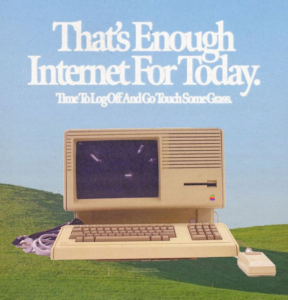
I miss what the Internet used to be – a place of learning and sharing safely, sans trolls, death threats, internet shutdowns, propaganda and hate-spreading.
We survived a pandemic, learning recipes and tools of survival on Zoom and IG Lives until Zoom fatigue became its own reality. (And now there’s talks of 70-hour work weeks 🤢 )
I have a love-hate relationship with social media, grateful for the resources, cat videos and occasional gems but unable to comprehend how we can watch a genocide unfold in real-time and still do nothing to make it stop.
…
How do we navigate the digital realm with intention?
How do we safeguard our data and opinions from the hateful trolls and hackers of the world?
How do we fight censorship and shadowbanning when the system is against truth?
I don’t have the answers to these questions. Instead, my personal manifesto for being online:
- I use technology cautiously and with intent.
- I do not owe anyone anything online.
- I do not post because I have to.
- I do not use click-baity tactics to be heard.
- I fact check and attribute, wherever necessary.
- I do my best to stay on the right side of history.
- I consume slowly and meaningfully.
- I forgo the concept of Inbox Zero.
- I will fight for my digital rights and freedom of speech.
- I hold space online for what matters to me.
Mapping and negotiating power
Uncuff India Episode 10: Dimensions of conflict and peace: visioning a utopian world
Uncuff India Episode 9: Civic space and dissent: A pathway to social justice
